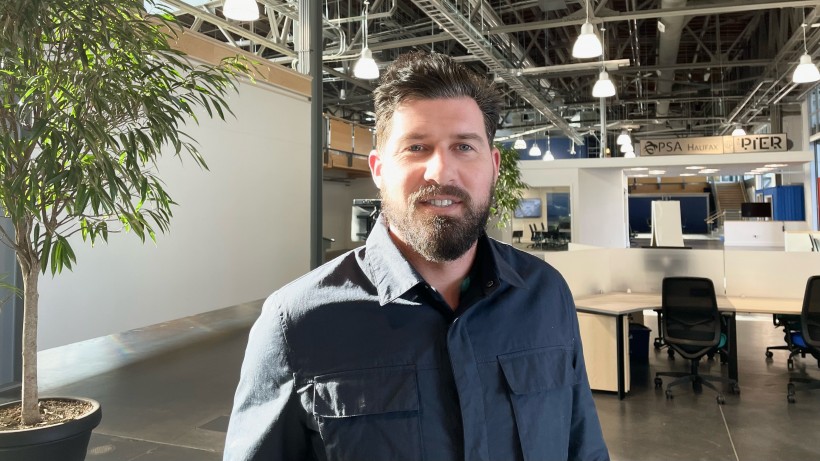On the back of launching its living lab at the Port of Halifax’s PIER innovation centre, building management startup B-Line has been accepted into the National Association of Realtors’ REACH scale-up program in the U.S.
REACH and its sister program, REACH Commercial, are run by NAR’s Second Century Ventures innovation arm. They aim to help companies that have demonstrated significant market potential in the real estate sector to dramatically increase their client-bases and raise sizeable funding rounds.
B-Line CEO Aaron Short said in an interview that he hopes the program will help his company raise between $8 million and $10 million, which NAR has told him will be readily achievable with the help of REACH and its networking opportunities. B-Line is also the only non-American startup in this year’s 17-company cohort, which includes several YCombinator graduates.
“They introduce you to everybody, potential investors, everything,” he said. “And also, a lot of these people are strategic investors, as well.
“And we have a product, but they know how to refine it.”
B-Line's flagship offering is an app that logs users’ movements within commercial buildings for contact tracing, as well as to help building owners identify ways to use space more efficiently.
The company’s technology is tied to a building’s access control system, such as keycard-controlled locks that can be used with the B-Line app. Short said that compliance rates are much higher using this feature than they are for the federal government’s contact tracing app.
B-Line’s technology works by using bluetooth sensors spread throughout a building to triangulate a phone’s location. It stores users' movement data according to a stringent privacy policy. Only if someone reports via the app that they have tested positive for COVID-19 or had an exposure can the building’s owner use the data for contact tracing.
The bluetooth sensors are only slightly larger than a stack of two or three loonies and have a battery life of about five years. B-Line typically collaborates with local access control companies to install its systems.
The PIER, which opened in December and is home to B-Line’s main office, now uses the company’s software in order to ptovide B-Line with a live testbed.
“We're really kind of helping the (commercial real estate) industry adapt to the new normal,” said Short. “And I think that's why they brought us in, because they're just like, ‘Okay, the future is uncertain. A solution like B-Line can help everybody navigate that.’”
Short said that being able to observe B-Line’s technology in a live environment on a daily basis allows his team to identify and fix problems more quickly than if they had to wait for customer support requests.
“We see the issues at the same time our customers do, rather than having to wait to hear from them,” said Short.
He added that B-Line’s revenue grew by several orders of magnitude last year, albeit from an initially small number, and looks set to double or triple this year, with many of its clients in the United States.
His team’s latest expansion push is aimed at making versions of B-Line for wearable technology, such as smart watches. That will allow them to pursue clients that own healthcare-related buildings, including hospitals and assisted living facilities, where staff cannot always carry their phones with them.
By the end of this month, Short said B-Line will have eight employees. He hopes to double that figure by the end of 2022, contingent on a successful funding round.
The company's Careers page currently shows an opening for a Growth Marketer. You can find the details here.










